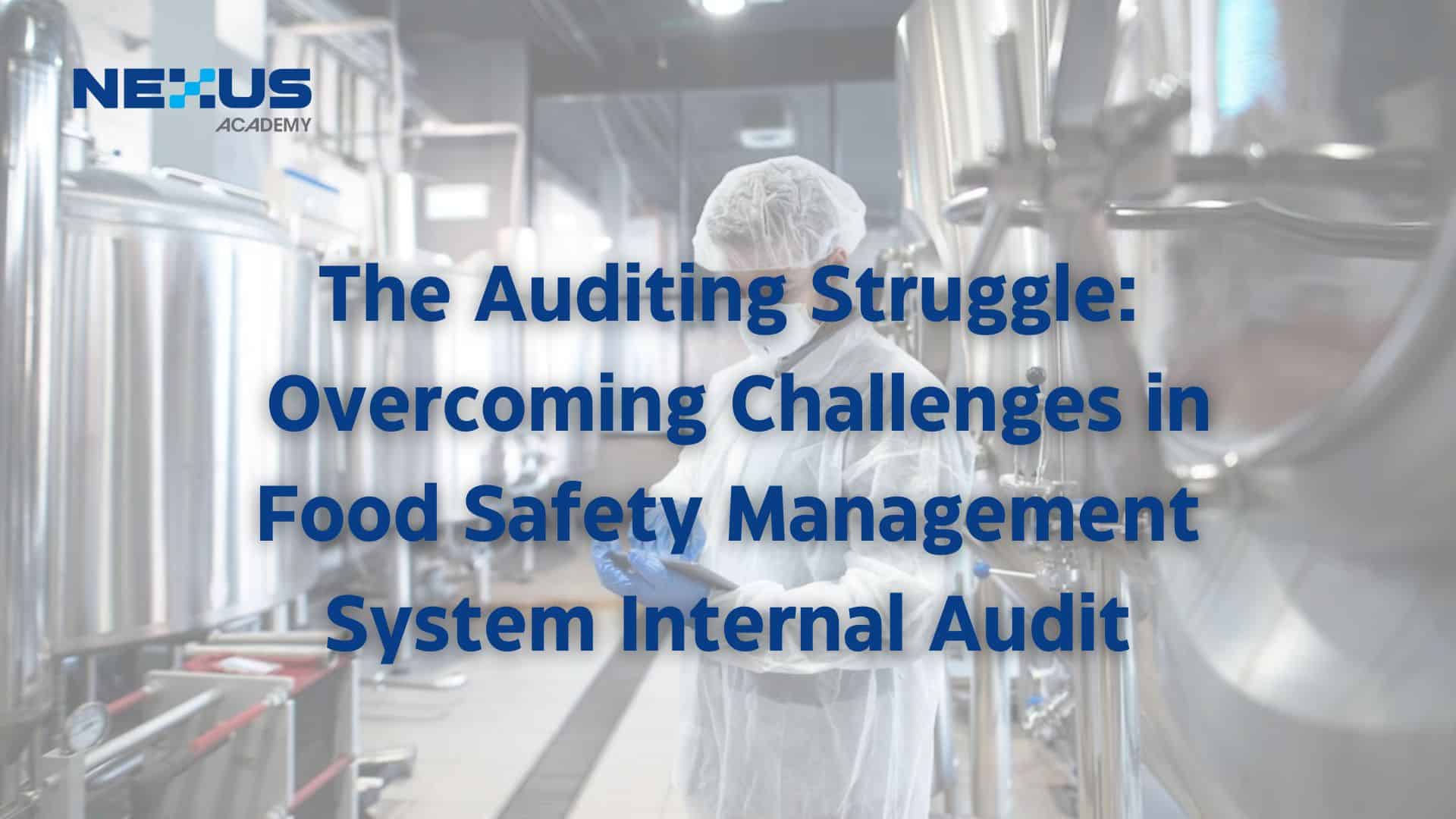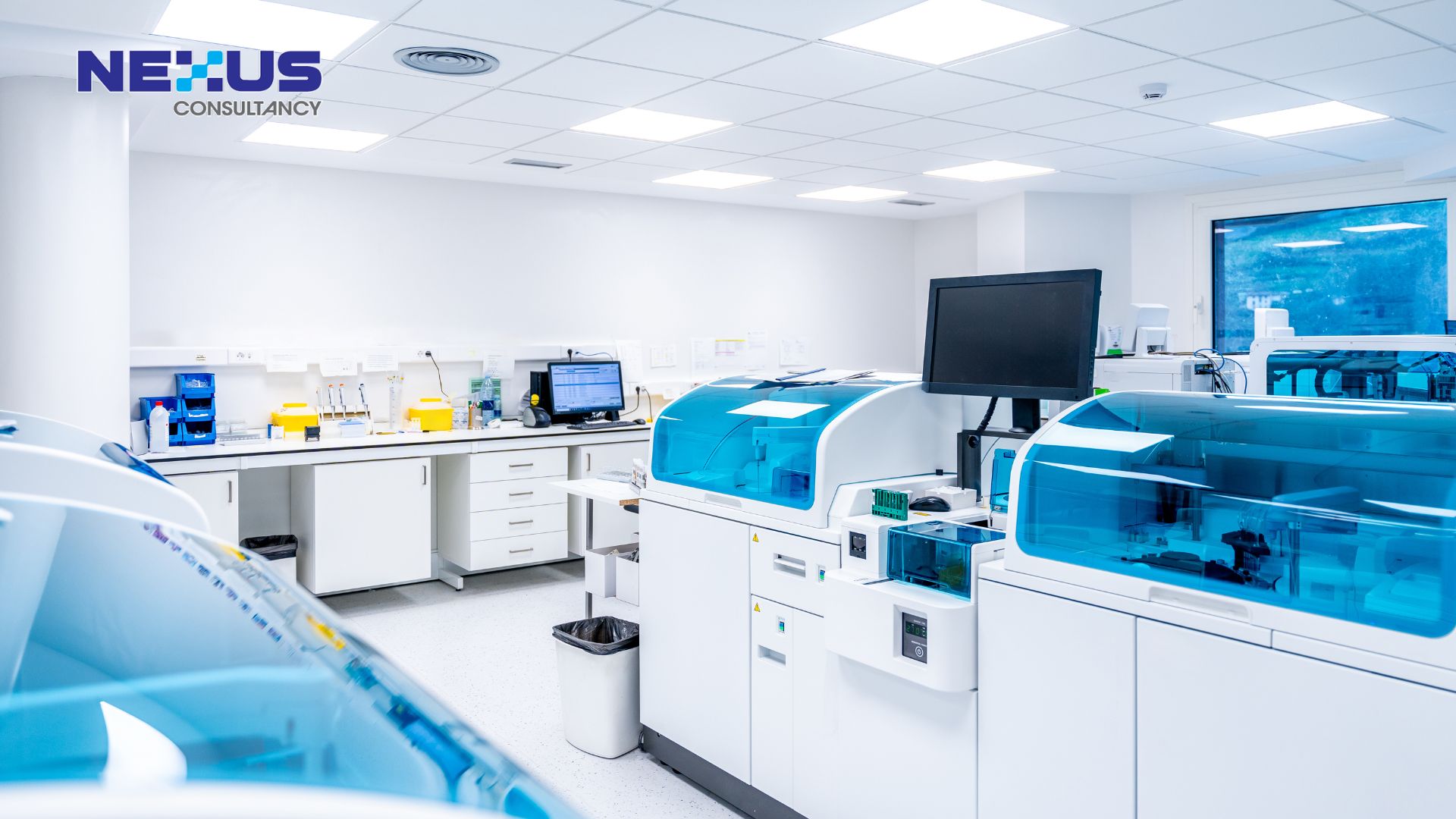
Danielle Tan
Chief Operating Officer
Internal audits in food safety management systems are essential for ensuring the safety and compliance of our food supply. However, these audits are not without their share of challenges. From the competence of auditors to maintaining objectivity and dealing with resource constraints, organizations face various obstacles in conducting effective internal audits.

Ensuring food safety is a top priority for any food-related business, as it directly impacts the health and well-being of consumers. Implementing a Food Safety Management System is crucial in guaranteeing that food products are safe for consumption. However, even the most robust Food Safety Management System is only effective if it is regularly reviewed and audited for compliance and effectiveness. This is where internal audits come into play. Internal audits help identify gaps in the Food Safety Management System, ensuring that it is performing optimally and meeting regulatory requirements. In this article, we will explore the importance of internal audit in a Food Safety Management System and the benefits it provides to businesses and consumers alike.
The Standard
| FSSC 22000 version 5.1 ISO 22000:2018 |
8.8.1 Verification (ISO 22000) 9.2 Internal Audit (ISO 22000) 2.5.12 Site Inspections (FSSC 22000) |
|---|---|
| CODEX HACCP 2020 |
3.11.2 Verification Procedures |
| MS 1480:2019 |
6.3.7.4 Internal Audit |
| BRCGS Food Safety Issue 9 |
3.2.1 Records 3.4.1 Internal Audit Program 3.4.2 Training and Independence 3.4.4 Documented Inspections. 7.2.1 Personal Hygiene |
#1 Lack of Internal Auditor Training
One of the main challenges in the internal audit process is the lack of training for internal auditors. Auditing requires specific skills and knowledge that not all employees possess. Internal auditors should be trained on the internal audit process, including planning, conducting fieldwork, and reporting. They should also be trained on the specific requirements of the food safety management system and the relevant regulations.
To address this challenge, companies should invest in training programs for internal auditors. These programs should cover the skills and knowledge required for auditing, as well as the specific requirements of the food safety management system.

#2 Inadequate Preparation
Another common challenge in the internal audit process is inadequate preparation. The internal auditor should plan the audit carefully to ensure that all aspects of the food safety management system are reviewed. The auditor should also ensure that all necessary documents and records are available for review.
To address this challenge, internal auditors should develop a thorough audit plan. The plan should outline the scope and objectives of the audit, as well as the areas to be audited. The auditor should also review relevant documents, including policies, procedures, and records, before conducting fieldwork.
#3 Lack of Objectivity
Internal auditors may also struggle with objectivity. Auditors may have personal biases or preconceived notions that affect their assessment of the food safety management system. They may also be influenced by the opinions of others within the company.
To overcome this, internal auditors should strive to remain objective throughout the audit process. They should base their findings on the evidence and not personal opinions. Auditors should also maintain their independence and avoid being influenced by the opinions of others within the company.
lack of action to address safety concerns or to prevent incidents from occurring.

#4 Ineffective Reporting
Another common challenge in the internal audit process is ineffective reporting. The internal auditor should prepare a report that summarizes the findings of the audit, identifies areas of non-compliance or weaknesses in the food safety management system, and makes recommendations for improvement. However, the report may not be effective if it is not clear or if the recommendations are not practical.
To address this challenge, internal auditors should focus on preparing a clear and concise report. The report should include a summary of the findings, as well as specific recommendations for improvement. The recommendations should be practical and actionable, and the auditor should follow up to ensure that the recommendations are implemented.
Conclusion
In conclusion, the internal audit process is critical to the success of a food safety management system. However, there are several challenges that companies may face when conducting internal audits. Companies should invest in training for internal auditors, develop a thorough audit plan, remain objective throughout the audit process, and prepare a clear and concise report. By addressing these challenges, companies can ensure that their food safety management system is effective and compliant with regulations.
Internal Audit Training
Training your internal auditors is crucial to overcome the challenges faced during internal audits in a food safety management system. Well-trained auditors are equipped with the necessary knowledge, skills, and expertise to perform the audit effectively and efficiently. They can identify potential issues, analyze data, and make recommendations for improvement, leading to better compliance with food safety regulations and standards. Investing in the training and development of internal auditors also helps to build a culture of continuous improvement within the organization, ensuring that the food safety management system is always up-to-date and effective.
We recommend the following training courses:
List:
MS 1480:2019 HACCP FSMS Internal Audit Training 8-9 Aug 2023, 28-29 Nov 2023
FSSC 22000 V5.1 Internal Audit Training 22-23 Jul 2023
ISO 22000 FSMS Internal Audit Training 13-14 Jun 2023, 19-20 Sep 2023, 21-22 Nov 2023
ISO 9001:2015 QMS Internal Audit Training 26-27 Jun 2023, 26-27 Sep 2023, 5-6 Dec 2023
ISO 14001:2015 EMS Internal Audit Training 15-16 Aug 2023, 7-8 Dec 2023
ISO 45001:2018 OHSMS Internal Audit Training 12-13 Sep 2023, 12-13 Dec 2023






